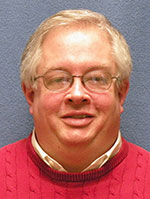Reflection / Sean Gallagher
Live each lap of life like it’s your last
 The Indianapolis 500 is a marathon. But winning doesn’t require dominating it, leading the race from the first lap.
The Indianapolis 500 is a marathon. But winning doesn’t require dominating it, leading the race from the first lap.
To win the Borg Warner Trophy, all you have to do is lead the last lap. In fact, all you have to do is be the leader at the end of that lap.
Josef Newgarden knows that well. He gained the lead in this year’s race with about a mile to go in the 500-mile contest, passing 2022 winner Marcus Ericsson going into turn three on lap 200 and ultimately crossing the yard of bricks first by less than one tenth of a second.
In winning this year’s Indy 500, Newgarden tied the record for the longest time—12 years—it took a racer to win for the first time.
Before this year’s 500 on May 28, Newgarden had experienced great success in open-wheel racing, winning 27 IndyCar races and two IndyCar season championships in the first 11 years of his career.
But winning at Indianapolis had always eluded him. In an interview immediately after the race, Newgarden showed his frustration with being asked many times over the years why he won elsewhere, but not at Indy.
“They look at you like you’re a failure if you don’t win it,” he said.
In this year’s race, Newgarden wanted to put this nagging assumption behind him for good.
So, when the chance for victory appeared before him on the last lap of the race, he reached out, grabbed it and wouldn’t let go.
In another interview after the race, he said that he was determined to do what it took to finish first this year and not settle for being a runner up.
“I’m either fencing the car or I’m winning the race. I didn’t want to finish second, third or fourth. It was all on the line today.”
For Newgarden, the Indy 500 isn’t a 500-mile marathon run on the last Sunday of May each year. It’s been a 12-year marathon marked by 5,500 miles of heartbreak before this year.
With all of that disappointment finally behind him, Newgarden said he was filled with “pure emotion” as he stopped his car at the yard of bricks after his victory lap.
Filled with energy, he hopped out of his car as if he had just finished an easy Sunday ride in the country, found an open spot in the fence and climbed through for an exuberant celebration with a group of fans.
“I’ve always wanted to go into the crowd here at Indianapolis. … I wanted to celebrate with the people. … This was a dream of mine. If [victory] was ever going to happen, I wanted to do that.”
For IndyCar drivers, achieving an Indy 500 victory is like entering heaven. And Newgarden going first to celebrate with the fans is like being surrounded by that great cloud of witnesses that is the communion of the saints—in this case, about 300,000 “witnesses” who attended this year’s race (Heb 12:1).
Each of us in our marathon race to reach heaven will experience many setbacks. And we may be troubled by those around us who focus first on our failures.
None of that matters, though, if with the ever-present help of God’s grace, we are found faithful by our merciful heavenly Father on the last lap of our lives as he draws us to eternal life.
Unlike the Indy 500, we never know when the last lap will occur. Live each lap like its your last. And then, with God’s grace fueling your finish, you can go forward in hope of a celebration with the saints that’s beyond your imagination.
(Sean Gallagher is a reporter for The Criterion.) †
 The Indianapolis 500 is a marathon. But winning doesn’t require dominating it, leading the race from the first lap.
The Indianapolis 500 is a marathon. But winning doesn’t require dominating it, leading the race from the first lap.